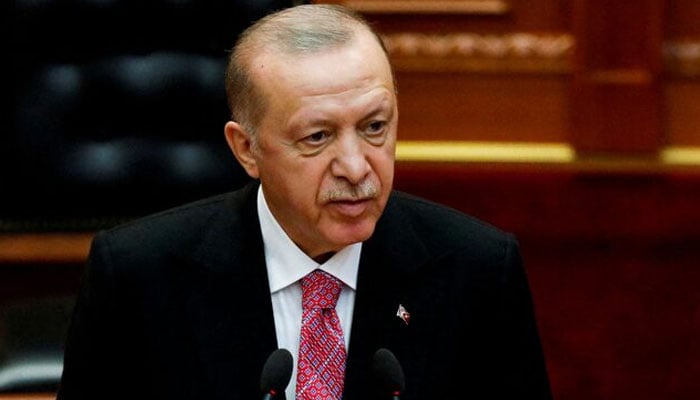Select Language:
Turkey has reaffirmed that it will never surrender the ancient Biblical-era inscription discovered beneath Jerusalem during Ottoman rule to Israel. President Recep Tayyip Erdogan emphasized this stance on Friday, referencing the so-called Siloam or Silwan inscription—a 2,700-year-old Hebrew tablet currently housed in Istanbul’s archaeology museum.
The controversy revved up diplomatic tensions Monday when Prime Minister Benjamin Netanyahu recalled that his 1998 efforts to recover the artifact were rebuffed, citing concerns that returning the inscription would provoke outrage among Erdogan’s Islamist supporters then serving as Istanbul’s mayor.
On Friday, Erdogan accused Netanyahu of spreading hatred against Turkey for refusing to return the relic, calling it a “legacy of our ancestors.” He stated, “Jerusalem is the honor, dignity, and glory of all humanity and Muslims… yet he shamelessly continues to demand the inscription. We will not give you that inscription, let alone a single pebble from Jerusalem.”
The limestone tablet was uncovered in the late 1800s inside the Siloam tunnel, an ancient aqueduct beneath Jerusalem. When found in 1880 during Ottoman rule, it was taken to Constantinople, now Istanbul, where it has remained ever since. The inscription describes the construction of the tunnel and is viewed by Israel as a key piece of evidence of Jewish history in Jerusalem, which the country has sought to acquire for years.
During the inauguration of a newly excavated ancient road in Silwan, a densely populated Palestinian neighborhood in East Jerusalem under Israeli occupation and annexation, Netanyahu highlighted the inscription’s significance—ranking it among Israel’s most important archaeological finds after the Dead Sea Scrolls. He recounted a 1998 conversation with former Turkish Prime Minister Mesut Yilmaz, claiming he offered Turkey a trove of Ottoman artifacts in exchange, but the offer was rebuffed due to concerns over growing Islamist influence led by Erdogan at the time, who was Istanbul’s mayor.
Yilmaz reportedly told Netanyahu that there was widespread opposition within Turkey, and specifically from Erdogan, against giving Israel a tablet that underscored Jerusalem’s Jewish history from 2,700 years ago. Netanyahu declared, “This is our city. Mr. Erdogan, it’s not your city—it’s ours. It always will be.”
The statement echoes Erdogan’s 2020 remarks where he described Jerusalem as “our city, a city from us,” emphasizing Turkey’s historical connections to the holy site, which was under Ottoman control for two centuries.
Relations between Turkey and Israel have sharply deteriorated over Gaza conflicts. Erdogan responded this week to Netanyahu’s claims, dismissing them as “tantrums” and reaffirming Turkey’s stance: “As Muslims, we will not step back from our rights over East Jerusalem.”
Jerusalem’s Old City, home to revered sites for Jews, Muslims, and Christians, remains a flashpoint of tension and violence, central to the ongoing Israeli-Palestinian conflict.







